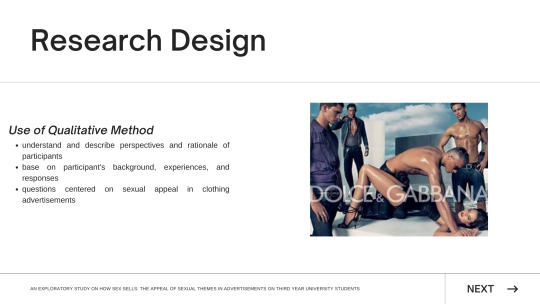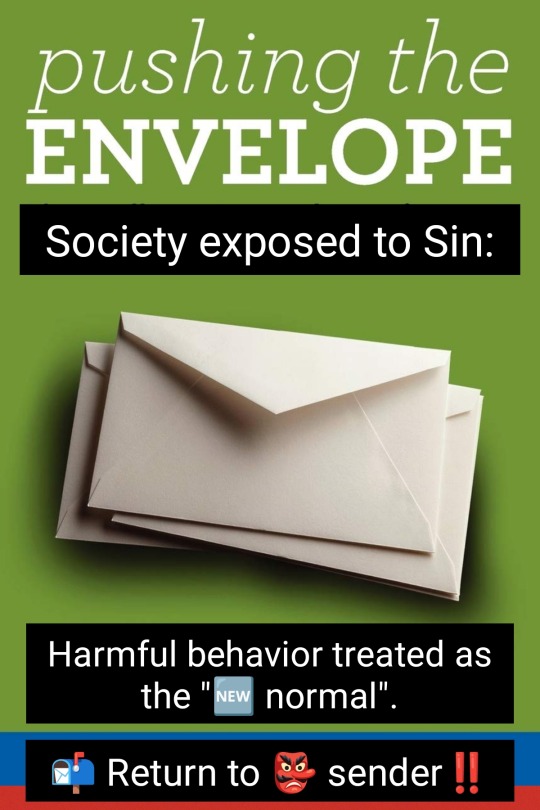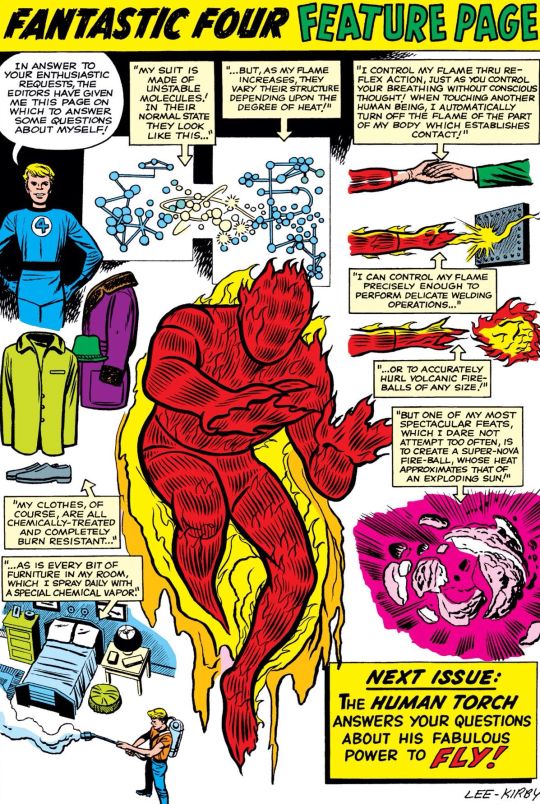#And desensitized by the mainstream media
Text
You are capable of amazing things when you learn to read and enjoy Shakespeare on your own, instead of being force fed literature by shitty teachers and borrowing opinions from edgy kids on social media and pop culture.
#This isn't gatekeeping I just wish people actually enjoyed Shakespeare and classic lit without it being misinterpreted#And desensitized by the mainstream media#Shakespeare isn't bad ur just bitter your teacher made you read things#defending r+j#Some people's reading comprehension is so ass they think Romeo and Juliet is bad#Imagine that#Hamlet#romeo and juliet#Macbeth#william shakespeare#shakespeare#literature#Willy Shakes#Classic lit
195 notes
·
View notes
Text
You will get chipped. It’s just a matter of time.
In the aftermath of a Wisconsin firm embedding microchips in employees last week to ditch company badges and corporate logons, the Internet has entered into full-throated debate.
Religious activists are so appalled, they’ve been penning nasty 1-star reviews of the company, Three Square Market, on Google, Glassdoor and social media.
On the flip side, seemingly everyone else wants to know: Is this what real life is going to be like soon at work? Will I be chipped?
“It will happen to everybody,” says Noelle Chesley, 49, associate professor of sociology at the University of Wisconsin-Milwaukee. “But not this year, and not in 2018. Maybe not my generation, but certainly that of my kids.”
Gene Munster, an investor and analyst at Loup Ventures, is an advocate for augmented reality, virtual reality and other new technologies. He thinks embedded chips in human bodies is 50 years away. “In 10 years, Facebook, Google, Apple and Tesla will not have their employees chipped,” he says. “You’ll see some extreme forward-looking tech people adopting it, but not large companies.”
The idea of being chipped has too “much negative connotation” today, but by 2067 “we will have been desensitized by the social stigma,” Munster says.
For now, Three Square Market, or 32M, hasn’t offered concrete benefits for getting chipped beyond badge and log-on stats. Munster says it was a “PR stunt” for the company to get attention to its product and it certainly succeeded, getting the small start-up air play on CBS, NBC and ABC, and generating headlines worldwide. The company, which sells corporate cafeteria kiosks designed to replace vending machines, would like the kiosks to handle cashless transactions.
This would go beyond paying with your smartphone. Instead, chipped customers would simply wave their hands in lieu of Apple Pay and other mobile-payment systems.
The benefits don’t stop there. In the future, consumers could zip through airport scanners sans passport or drivers license; open doors; start cars; and operate home automation systems. All of it, if the technology pans out, with the simple wave of a hand.
The embedded chip is not a GPS tracker, which is what many critics initially feared. However, analysts believe future chips will track our every move.
For example, pets for years have been embedded with chips to store their name and owner contact. Indeed, 32M isn’t the first company to embed chips in employees. In 2001, Applied Digital Solutions installed the “VeriChip” to access medical records but the company eventually changed hands and stopped selling the chip in 2010.
In Sweden, BioHax says nearly 3,000 customers have had its chip embedded to do many things, including ride the national rail system without having to show the conductor a ticket.
In the U.S., Dangerous Things, a Seattle-based firm, says it has sold “tens of thousands” of chips to consumers via its website. The chip and installation cost about $200.
After years of being a subculture, “the time is now” for chips to be more commonly used, says Amal Graafstra, founder of Dangerous Things. “We’re going to start to see chip implants get the same realm of acceptance as piercings and tattoos do now.”
In other words, they’ll be more visible, but not mainstream yet.
“It becomes part of you the way a cellphone does,” Graafstra says. “You can never forget it, and you can’t lose it. And you have the capability to communicate with machines in a way you couldn’t before.”
But after what we saw in Wisconsin last week, what’s next for the U.S. workforce? A nation of workers chipping into their pods at Federal Express, General Electric, IBM, Microsoft and other top corporations?
Experts contend consumers will latch onto chips before companies do.
Chesley says corporations are slower to respond to massive change and that there will be an age issue. Younger employees will be more open to it, while older workers will balk. “Most employers who have inter-generational workforces might phase it in slowly,” she says. “I can’t imagine people my age and older being enthusiastic about having devices put into their bodies.”
Adds Alec Levenson, a researcher at University of Southern California’s Center for Effective Organizations, “The vast majority of people will not put up with this.”
Three Square Market said the chips are voluntary, but Chesley says that if a company announces a plan to be chipped, the expectation is that you will get chipped — or risk losing out on advancement, raises and being a team player.
“That’s what we’re worried about,” says Bryan Allen, chief of staff for state Rep. Tina Davis (D), who is introducing a bill in Pennsylvania to outlaw mandatory chip embedding. “If the tech is out there, what’s to stop an employer from saying either you do this, or you can’t work here anymore.”
Several states have passed similar laws, while one state recently saw a similar bill die in committee. “I see this as a worker’s rights issue,” says Nevada state Sen. Becky Harris (R), who isn’t giving up. “This is the wrong place to be moving,” she says.
Should future corporations dive in to chipping their employees, they will have huge issues of “trust” to contend with, says Kent Grayson, a professor of marketing at the Kellogg School of Management at Northwestern University.
“You’ve got to have a lot of trust to put one of those in your body,” Grayson says. Workers will need assurances the chip is healthy, can’t be hacked, and its information is private, he says.
Meanwhile, religious advocates have taken to social media to express their displeasure about chipping, flooding 32M’s Facebook page with comments like “boycott,” “completely unnecessary” and “deplorable.” On 32M’s Google page, Amy Cosari a minister in Hager City, Wisc., urges employees to remove the chip.
“When Jesus was raised, he was raised body and soul, and it was him, not zombie, not a ghost and we are raised up in the same way,” Cosari wrote. “Employees of 32Market, you are not a walking debit card.”
Get used to it, counsels Chesley.
Ten years ago, employees didn’t look at corporate e-mail over the weekend. Now they we do, “whether we like it or not,” he says.
Be it wearable technology or an embedded chip, the always on-always connected chip is going to be part of our lives, she says.

30 notes
·
View notes
Text
Reading fanfiction has completely desensitized me towards so many things that are taboo in mainstream media, coz that plot twist on my show tonight? Yeh I saw that coming a mile off and I didn't even flinch lmao
6 notes
·
View notes
Text
A man broke in to the house of the U.S. Speaker of the House of Representatives in a potential assassination attempt. And while said assassination attempt was meant for the person who is SECOND in the line of succession, she was not home. So, the attacker got her husband instead and violently assaulted him with a hammer.
Most of the response to this I have heard so far vary from conspiracies that this attack was was actually motivated by a quarrel over an affair to, "Well, I don't much like democrats anyway. Fuck Nancy Pelosi."
Have we been so desensitized to right-wing, fascistic political violence that we cannot see the severity of this? You don't have to like the democratic "establishment" or party leaders to understand the gravity of this and to understand that this is a symptom of a very large and very serious issue.
I listen to NPR's WBEZ while at work. And they regularly interview Kathleen Belew, a tenured associate professor of history at Northwestern University and an international authority on the white-power movement, when news stories involving right-wing violence are in the news cycle. (Belew wrote the books Bring the War Home: The White Power Movement and Paramilitary America and A Field Guide to White Supremacy.) Getting my information from sources such as Belew combined with my educational background may be part of the reason why I find stories like these alarming.
And I-- I really don't know what I can do to convince people that this is serious beyond educating people about white supremacy and the dangers it presents:
This is some of the sort of stuff I casually listen to. It's not uplifting and it's not comfortable, but it's also a privilege to choose to be blissful in the face of such serious threats to people's lives, the achievement of civil emancipation, and the creation of a democratic union.
The attack of Paul Pelosi is part of a series of similar events happening all over the country from the death threats our office has received, to armed vigilantes in tactical gear waiting in the parking lots of polling locations, to the attempted kidnapping of Governor Whitmer. And the people being charged in these crimes are all citing a similar pipeline of radicalization that has been endorsed, not denounced, by the GOP.
Make no mistake, this is a pattern that shows a rise in fascist behavior.
#Fascism#white supremacy#Grand Old Party#Republican Party#Democratic Party#U.S. politics#conservatism#altright
16 notes
·
View notes
Note
Wait! Hold on, if I can send in another bingo, one for Adachi too? Tear into the silly jester man.

hm now that i :tedthink: about it i dont really have strong opinions on adachi outside myself (?) if i see anybody but masamisan on screen i cuss and swear in three languages like some evolved predator instinct. i have not been this much of a hater of anything ever since, until i met this man and discovered the true meaning of being so genuinely incredibly red faced seething mad at a fictional character. while im mad at him for. what he is. there's not much big opinions i'd impose on him actually
N1 done dirty as in... the usual fate of big time mainstream media popular characters. there's a few eggs i won't accept but i don't really have much monopoly on him idrc. he's..... kind of peacefully there in my bubble? now that i think about it? i'd more rather think people would have opinions on my opinions which i dont really mind. i just see him in canon context and go mad while im a bit desensitized to see him fan-portrayed. huh
i2 bcause... no 1 hes stupid and gay no 2 he's the antagonist of the series and has dots i need to pay attention to if i want to connect lore all prettily on my conspiracy board full of pins and red string and sticky notes or i'll go mad but it already makes me mad i have to THINK about him it's infuriating :mewhenigetyou: :mewhenigetyou: :mewhenigetyou: no 3 visua....live...................... lies dead on the pavement with a treasured dvd in hand. this applies to i3 also. O3 G5 O5......... those are also givens
#assk#cyphere#ask game#persona 4 spoilers#p4#tohru adachi#// when it means fork in the microwave like. yeah this house (brain) is going to blow into smithereens (derogatory). sets it on high#// i make a self insert oc just to beat the shit out of him idc about plot he'll just be afraid of me#// every thing about this jester bitchboy awakens seething anger in me he comes on screen and i go 'brother you can just die'#// people can have their opinions i'll uh. be here making him the second most used character tag in my ..blog
3 notes
·
View notes
Text
I can't help but consider our modern relationship with social media and digital content as one of the keystone elements in the surge of identities that people (especially young people) are having. I was lucky. I remember what life was like before computers and phones became everyday objects. And even when they started to become the norm, my family still took a while to join the boom. We didn't have a lot of extra money to throw around for things that weren't yet necessary.
Sometimes I tell people, "I can't imagin being a kid or a teenager now." I can't imagine having to curate an internet image, aesthetisizing every moment of my life for clout. The smoke and mirrors of it all, how exhausting.
And then the porn. Always just a click away, even on mainstream social networks and sites. Children seeing oversexualized people, becoming desensitized to what used to be in the centerfold of dirty magazines, all which now pops up on their daily feed. Influencers advertising makeup, clothes, sex toys, substances. Through the screen they act like your friend, through the screen kids don't see the paycheck, the script.
Their brains are still developing, for crying out loud, and we're allowing them access to a world we adults aren't even able to handle! And then these things are telling kids to define themselves, quickly now, so the algorithm can give them what they like.
So of course children and teens are getting wrapped up in the Barnum effect of it all. They're inherently curious - I know I was. But before, you'd look things up in books, or ask a friend or family member. There was a physicality to it all. If you wanted to look up something naughty, perhaps, and you were too ashamed to ask someone you knew, well then you'd better be willing to brave the library, the looks of the librarian if you needed help. Shame could be a factor in keeping some people from going too deep, too far into something that's hard to come back from.
But those physical checks and balances - asking someone, going to a place of knowledge - helped us keep each other accountable, and look out for each other if something was up, have conversations if something was wrong or uncomfortable. There was a collective, in a sense. Now, the collective is the world wide web, and it fits right in the palm of your hand. Now, you have kids seeing posts from their favorite celebrities, their favorite bloggers, their peers talking about identity, kinks, politics, anatomy, language, the whole package. Now, you have kids reading tweets (or Xs or whatever nonsense it's called now) telling them if they feel something then they ~are~ something. Now, you have kids barely in their teens coming out with pronouns and wanted surgeries to their parents with no warning, the children having done all their identity homework via the internet.
I helped a customer at my job one day who didn't want anything, didn't need to use our services. He just wanted to come in and update his name on his store account. "I'm really excited," he explained to me, playing with the string of his hoodie, his light scruff of a beard a little bed-heady. "I've thought really hard about what I want my name to be, since I'm nonbionary, and I've finally got it." He told me his new name (still masculine, but referencing a favorite author of his) and then rattled off his list of all the other places he had to go and change it. He was seventeen, maybe eighteen, and couldn't wait to legally change his name on his learner's permit. He seemed sweet, albeit a little weird, and I could tell he was waiting for a reaction, a congratulations or an offended look. Any attention to affirm his choice. Sorry, his "truth."
Kids are creative. They create stories with toys, ideas, inanimate objects. When the home computer came along, kids created avatars. Naming them is fun, important - especially if someone other than you is going to see them. One word or short phrase is supposed to encapsulate who you are. (I laugh at how long it took me to come up with my first Tumblr username.) But then the digital became too personal, the lines blurred, and suddenly there's clout in naming yourself.
But in embracing their "true selves," their "authenticity," kids today are disassociated from themselves more than ever before. Outside of who technology tells them they are, what else do they have? If the internet stopped telling them who they were, what could they become?
I'm thankful that I grew up without the internet holding my hand. I was a very nonconforming girl: cargo shorts were my uniform, I refused to wear makeup or shave, I liked collecting bugs and playing in the dirt. If I had grown up today, I'd have changed my pronouns at least, if not opted into a full transition. But instead of spending my teenage years watching short videos on qu**r theory takes and how 2+2 can equal 5, (shoutout to Foucault, the enemy of logical thought) I spent my time playing with friends, creating things with too much paint and glitter, reading any book I could get my hands on. And the thing I love is that nearly every hobby that was important to me as a child is still important to me in my adulthood, is a healthy escape from the mundanity of work and obligations.
But what if what was important to me as a child was intangible? What if it was my identity? Like I said earlier about curating the perfect internet profile, this is simultaneously too much pressure for young folks AND it's far too narcissistic. Stop looking in the black mirror of a phone screen and start looking for the things that make you genuinely happy and curious. You'll be healthier for it.
1 note
·
View note
Note
I'm the first anon, hi again and firstly, I want thank you for not being aggressive (most people are when it comes to this conversation) while voicing your opinions.
Before I start, please check this post out: https://www.tumblr.com/blackheartbiohazards/730522787180085248/i-dont-want-to-read-this-is-totally-valid?source=share
My opinion, as clearly as I can put it, is: the writer doesn't spread the harm of the porn industry by writing whatever they want to write. Same applies to the readers for reading whatever they want to read.
Fiction is where authors can do the really uncomfortable stuff. Where they can explore the darks part of existing, because it's good to be able to go “I connect with this and I should consider why.” Or “this brings me comfort, how can I break that down?” Stuff like that.
The writer simply doesn't spread the harm of the porn industry by writing whatever they want to write.
I support the right of everyone to read and write what they want because I don't know their situation, don't have the right to demand an explanation of their situation, and have seen what happens when people try to excuse banning and censorship of written text or harassing authors with the excuses of “it’s just the bad ones,” “we’re just protecting kids,” “we just have a few concerns,” “we’re just being good people,” and “if I wrote something gross I’d expect to get called out”
What we have to be careful about is not condoning such themes in reality. If you, somehow, get “this person is okay with harm to real human beings” or “they promote the harm and romanticize what porn industry does” out of that, you really need to re-examine your mindset.
to preface: i may come off a bit more aggressive/forward in this post because it's something i'm extremely passionate about.
okay, so, i looked at the post and specifically the quote, ""I don't think anyone should be allowed to read or write this because it is disgusting to me" is authoritarian." has stuck out to me because not condoning the romanticization + fetishization of illegal acts isn't authoritarian. if your idea of personal freedom being challenged is someone refusing to accept graphic depictions of incest, non-consensual/dubious sex, and violent kinks in writing that you're meant to take pleasure in—then the discussion ends here. there's nothing i could say that would get you to seriously consider my points. referring to some of the tags on that post, anti-censorship is meant for media and literature that is wrongfully struck down for making people uncomfortable despite the message's importance. whether they were using these terms extremely literally or you took it out of context, i'm not sure, but i'm talking about smut here and using the term "authoritarian" to try and prove why i should simply ignore people condoning illegal acts is farfetched.
... because by writing it, they are condoning it. if they need to explore why they connect with things the way they do, or why they find comfort in the taboo, then they need to take those steps alone without posting disturbing smut to the internet for countless other people to read. they aren't just writing this type of stuff for funsies. people don't get inclined to write things like that for some harmless fun. they're writing it because they at least find some kind of pleasure or release when they do, which is bad. this goes for consuming it too, but there's a few other points i want to bring up to that point later.
you may not think there's a link between this kind of extreme writing and the porn industry, but there is. these "stepcest" and "non-con" categories would either not exist, or not be as mainstream as they are without the existence of it in porn. porn is the reason that it's quite literally everywhere you look on the internet and why people are so desensitized to it in the first place. it has been increasingly worse in the writing community. especially to those, like readers, who consume it often.
i don't blame readers or writers who have been exposed to the consumption of extreme porn because it is a pipeline. you really don't realize it until it's too late and you have to take the steps to remove yourself from that kind of space. slowly, the reader will consume more and more content as it gets more extreme, and in a little while they'll find some kind of pleasure in it for various reasons (comfort, connection, trauma). they're desensitized to the illegality and violence of it. you don't keep returning to that kind of subject matter without an ounce of real desire unless you just love the shock value, which is a whole other issue.
when someone is desensitized to this kind of violence, they will think it's okay in their real personal lives. maybe not to even do themselves, but have someone do it to them. i've seen countless people believe they're into extreme kinks because of how the internet has desensitized them.
by spreading this content, they are condoning it. because even if you don't want to partake in incest or sexual violence someone does. and i can guarantee that they read and enjoy the type of smut that's being written and posted on here (and any platform, for that matter). writers are allowed to write whatever they want to write, but we also need to take a step back and look at why they want to write it and expose it to other people. that is why i have such a huge issue with it.
1 note
·
View note
Text
Why Did You Send That?

In the digital age, where connectivity transcends geographical boundaries, human behavior has undergone a profound transformation. One perplexing phenomenon that has emerged is the sending of unsolicited explicit images to strangers on the internet. While seemingly inexplicable at first glance, this behavior is a manifestation of complex psychological factors, reflecting a blend of anonymity, instant gratification, power dynamics, and evolving social norms.
The anonymity offered by the internet has long been associated with
disinhibition, allowing individuals to express thoughts, emotions, and impulses without fear of real-world consequences. This virtual veil can embolden people to engage in behaviors they might never consider offline. Sending unsolicited explicit images can be perceived as an act devoid of accountability, leading to a detachment from the ethical considerations that govern face-to-face interactions.
The instantaneous nature of online communication has led to a culture of instant gratification. Sending explicit images to strangers might be an attempt to fulfill an immediate need for attention, validation, or excitement. The thrill of receiving a response, even if negative, can trigger a dopamine rush, reinforcing the behavior. This quest for immediate pleasure can override inhibitions and result in actions that are impulsive and often irrational.
Within the realm of unsolicited explicit images, an undercurrent of power dynamics often comes into play. In some instances, the sender might seek to exert dominance or control over the recipient, reinforcing their own sense of superiority. The act can be an attempt to provoke shock, discomfort, or humiliation, thereby fulfilling a twisted need for control in a digital environment where boundaries are blurred.
As the boundaries of acceptable behavior shift in the digital landscape, the prevalence of explicit content in media and online interactions has led to desensitization. People might send unsolicited explicit images as a result of a skewed perception of what constitutes normal behavior, influenced by exposure to explicit content in mainstream media or peer groups. This normalization can distort their understanding of boundaries and appropriateness.
The enigma of sending unsolicited explicit images to strangers on the internet finds its roots in the complex interplay of anonymity, instant gratification, power dynamics, and evolving social norms. While this behavior may seem inexplicable on the surface, a deeper exploration reveals the intricate psychological motivations that drive such actions. As society continues to grapple with the challenges of the digital age, it is imperative to foster awareness, education, and responsible online behavior to mitigate the occurrence of such incidents and create a safer and more respectful online environment for all.
What do you think is behind the sending unsolicited explicit images to strangers?
As with all of my thoughts, please see this disclaimer.
©TLK2023
#d/s relationship#d/s community#d/s blog#d/s real life#dom/sub#bdsmblog#bd/sm community#bd/sm lifestyle#ds community#chattingwiththelightkeeper#bdsmlife#bdsmrelationship#d/s lifestyle#d/s dynamic#bd/sm relationship#my quotes#daily thought#The Daily D/S
0 notes
Text
WarLeaks Graphic Videos from Ukraine: Navigating the Ethical Quandaries of Unfiltered War Content
In an era of unparalleled access to information, platforms like WarLeaks have emerged, providing unfiltered and graphic videos from conflict zones around the world. Amidst the ongoing conflict in Ukraine, WarLeaks has become a significant source of visual content that exposes the harsh realities of war. However, the release and dissemination of such graphic videos raise profound ethical considerations. This article examines the impact of warleaks graphic Ukraine, the ethical dilemmas they present, and the challenges of navigating the fine line between transparency and harm.
Unveiling the Brutality:
WarLeaks, as a platform, aims to offer an unvarnished view of warfare, including the violence and devastation witnessed in conflict zones. The graphic videos from Ukraine distributed by WarLeaks reveal the brutal realities faced by combatants and civilians alike. From the chaos of bombings to the aftermath of deadly clashes, these videos capture the raw and visceral moments of armed conflict. They provide a glimpse into the profound human cost of war, exposing the suffering and loss experienced by those directly impacted.
Impact on Public Awareness:
The graphic videos from Ukraine published by WarLeaks serve as a double-edged sword in terms of public awareness. On one hand, they provide a stark and unfiltered view of the consequences of armed conflict, challenging sanitized narratives presented by mainstream media. The exposure to the harsh realities of war can foster empathy, galvanize public opinion, and mobilize support for peace-building initiatives. However, it is essential to recognize that the graphic nature of these videos can also lead to desensitization, voyeurism, or exploitation if not approached with care and sensitivity.
Ethical Dilemmas:
The dissemination of graphic videos from Ukraine by WarLeaks presents a myriad of ethical dilemmas. The explicit and intense imagery can cause distress, trauma, and potentially retraumatization for viewers, especially those unprepared for the graphic content. The psychological impact on individuals, including vulnerable populations such as children or individuals with preexisting trauma, must be given due consideration. The responsibility lies with content creators, platforms, and viewers to approach this content ethically, taking into account the potential harm it may cause.
Responsible Dissemination:
Responsible dissemination of graphic videos entails striking a balance between transparency and protecting the well-being of viewers. Content creators and platforms should provide appropriate warnings, age restrictions, and support resources for viewers who may be affected. Contextualization of the footage is crucial to ensure it is not taken out of context or sensationalized. Additionally, content moderation and guidelines for responsible sharing can help minimize harm and ensure that the dissemination of graphic videos is done in an ethically sound manner.
Promoting Empathy and Action:
Despite the ethical complexities surrounding graphic videos from Ukraine, they have the potential to promote empathy, understanding, and action. When consumed responsibly, these videos can humanize the victims of war, stimulate discussions on conflict resolution, and mobilize support for humanitarian efforts. By shedding light on the brutal realities faced by those in conflict zones, the graphic footage can drive meaningful change, calling for an end to violence and advocating for peace.
Conclusion:
WarLeaks' graphic videos from Ukraine provide a visceral and unfiltered view of the devastating consequences of armed conflict. While they have the potential to raise awareness and inspire action, the dissemination of such content must be accompanied by careful ethical considerations. Responsible dissemination practices, warnings, and support resources are essential to protect viewers from potential harm. By navigating these ethical quandaries, we can harness the power of these videos to foster empathy, understanding, and a collective commitment to promoting peace in Ukraine and beyond.
0 notes
Text
An Exploratory Study on How Sex Sells: The Appeal of Sexual Themes in Advertisements on Third Year University Students



You may read the abstract of the research below:
The purpose of this study was to determine how the presence of sexual themes affected whether a certain brand, product or advertisement is appealing to third year university students from the Ateneo De Manila University in the Philippines. To look into this, the researchers used an exploratory study centered on the incorporation of the arousal theory to investigate the various factors that influence and affect these individuals' perceptions. The researchers hypothesized that the presence of these sexual stimuli would increase the appeal that the advertisements would have.
The participants were gathered through a combination of both convenience and snowball sampling before being subjected to a focused group discussion. During the discussion, the participants were shown various clothing advertisements with sexual themes and asked what their various thoughts and opinions were when exposed to advertisements such as this. Their responses were transcribed then processed through codification and textual analysis in order to isolate the various common patterns that emerged.
The results showed that with the demographic that the participants were in they expressed that they were desensitized to the use of sexual themes to promote products with how commonplace it has become in mainstream media. They also shared that what appeals to them most are advertisements or marketing campaigns that appeal to their emotions whether shock, nostalgia or love as well as those that are timely and take advantage of what is currently happening in popular culture.
With this, the researchers decided to create a profile of the third year student in order to outline the various traits and factors that appeal to them and affect their mentality as consumers. This may be used by marketers as a guide in order to shape the direction of their campaigns to appeal to this target audience. For further research, they outlined that the responses and what appeals to other demographics may be explored as other factors such as different socio-economic status and generational upbringing which may affect their perceptions when making purchase decisions.
0 notes
Text
Snoop Shows Overwhelming Support To An Embattled Tyrese Gibson

It’s no secret that stars have their fair share of issues, and performing artist and actor Tyrese Gibson made news on May 25th for the sharing of his. But the sharing of his woes wasn’t the only thing that Gibson brought to the masses. He also shared the overwhelming support he received from fellow friend and industry mate Snoop Dogg. And it is a beautiful thing.
The Woes of Tyrese Gibson
This is not the first time Tyrese has made news for the struggles he’s dealt with in his life. On May 25th, Tyrese expressed intense vulnerability to his fans. In a message to millions of his followers, he admitted to his current struggles with depression. This posting was believed to be in response to some surfaced audio clips. The audio clips were of Tyrese proclaiming how he felt his wife married him solely for his money. In his post-divorce trial musings, he stated,
“ Imagine me being the only actor in a relationship to then realize that I was in a relationship for five years with one of the best actors I’ve ever met in my f****** life.”
Woes and Desensitization
In this world where mental health issues are so pressing and often a tremendous amount of pain and anguish saturates social media, empathy is usually found wanting. Woes are commonplace, and the attending audience has become desensitized. But Snoop Dogg couldn’t let the details of another’s suffering go without stepping in to offer encouragement. He stepped up when he saw a fellow friend and industry mate struggling.
Snoop’s Display of Brotherhood to Gibson
This act was not a public showcase but an authentic show of care and concern. The world would never know how much Snoop, otherwise known as Christopher Broadus, extended himself if not for Gibson. Tyrese posted the message from Snoop for the world to witness. And it was incredibly moving. One of the most inspirational portions of the message went as thus,
“I’ma watch you from the sidelines, and then when God and them talk to me from upstairs, that’s when I’ma step in and do what Kim do. We work for the same God, my n-gga. You gotta know that.”
Who couldn’t help but love and appreciate Snoop for that level of support and commitment to brotherhood?
Showing ‘em How it’s Done
Everyone goes through something. Some go through more than others. But stars often fight public battles and, because of their platform, are besieged by a plethora of opinions that often amplify those issues. It’s comforting to know that there are people out there who care regardless of their status. It's assuring to know that there are those who are way more than their persona, which mainstream media have constructed.
So today, Snoop has earned even more respect for leading the way, for showing the world that this is how it's done. And much gratitude to Gibson for sharing.
Written By: Renae Richardson
Read the full article
0 notes
Text

Photo by:
Short article
Post edsa revolution was a transition from "guided newspapers" to a free and responsible journalism. Some Pro-Marcos establishments were closed while alternative press were used as mainstream media. Although the Aquino government sequestered the Pro-Marcos establishment newspapers and Major broadcasting stations that Marcos owned were also sequestered. Philippine Press Institute was revived and its mission is to professionalize the Philippine Press by continuing education, Journalists Code of Ethics, and the giving of Community Press Awards. The Advertising Foundation of the Philippines was organized as the "social development" in 1989.
Reference:
0 notes
Text
i just realized.
if people are upset by certain things(that need warnings put on them), that doesn’t make those people special or different from everyone else.
that’s because being upset by some of these things are actually normal reactions to actual bad things(graphic violence, drug abuse, suicide, ETC.) if you are deeply disturbed by detailed mutilation or a person taking their own life, you are in the right. and if you don’t really mind that... well, i regret to inform you this, but you’ve probably been desensitized by mainstream culture.
this world we live in has come to the point where enjoying bad media(albeit with a higher rating) is more in line with the standard than being upset by it.
granted, there’s stuff like PTSD, but that’s not what i’m really talking about here.
0 notes
Text
Wait … how many songs about the desensitization of the American psyche, via the injection of sexual violence into mainstream entertainment media, to the brutalization of women were your rock stars writing when you were coming up?
0 notes
Text

youtube
SUBSCRIBE ❣️
Every single day, the FIRST order of business is to bring what's on your 🍽️ "plate" before the Lord, laying it ALL at the Altar-Footstool of God.

youtube
You are being conditioned to become a "Creature of habit" that rejects conscience, and therefore becomes hostile to the Holy Spirit's parenting.

youtube
Young minds are being MOLDED, to become desensitized.

youtube
MUST ⏰ WATCH.
Predictive 👿 Programming.

youtube
Don't offer 🦯🦮 blind trust.

BREAK 📴 the stranglehold.

youtube
Is your Ministry on FIRE 🔥?
"If I was half the man I used to be I'd take a Flamethrower to this place‼️"
0 notes